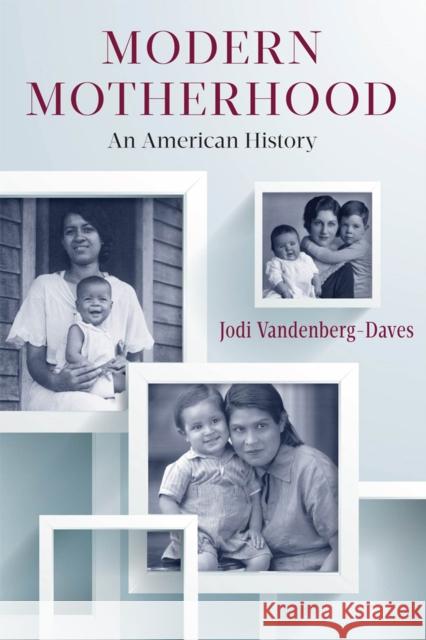Modern Motherhood: An American History » książka
topmenu
Modern Motherhood: An American History
ISBN-13: 9780813563794 / Angielski / Twarda / 2014 / 344 str.
Modern Motherhood: An American History
ISBN-13: 9780813563794 / Angielski / Twarda / 2014 / 344 str.
cena 585,33
(netto: 557,46 VAT: 5%)
Najniższa cena z 30 dni: 582,94
(netto: 557,46 VAT: 5%)
Najniższa cena z 30 dni: 582,94
Termin realizacji zamówienia:
ok. 22 dni roboczych.
ok. 22 dni roboczych.
Darmowa dostawa!
How did mothers transform from parents of secondary importance in the colonies to having their multiple and complex roles connected to the well-being of the nation? In the first comprehensive history of motherhood in the United States, Jodi Vandenberg-Daves explores how tensions over the maternal role have been part and parcel of the development of American society.
Modern Motherhood travels through redefinitions of motherhood over time, as mothers encountered a growing cadre of medical and psychological experts, increased their labor force participation, gained the right to vote, agitated for more resources to perform their maternal duties, and demonstrated their vast resourcefulness in providing for and nurturing their families. Navigating rigid gender role prescriptions and a crescendo of mother-blame by the middle of the twentieth century, mothers continued to innovate new ways to combine labor force participation and domestic responsibilities. By the 1960s, they were poised to challenge male expertise, in areas ranging from welfare and abortion rights to childbirth practices and the confinement of women to maternal roles. In the twenty-first century, Americans continue to struggle with maternal contradictions, as we pit an idealized role for mothers in children's development against the social and economic realities of privatized caregiving, a paltry public policy structure, and mothers' extensive employment outside the home. Building on decades of scholarship and spanning a wide range of topics, Vandenberg-Daves tells an inclusive tale of African American, Native American, Asian American, working class, rural, and other hitherto ignored families, exploring sources ranging from sermons, medical advice, diaries and letters to the speeches of impassioned maternal activists. Chapter topics include: inventing a new role for mothers; contradictions of moral motherhood; medicalizing the maternal body; science, expertise, and advice to mothers; uplifting and controlling mothers; modern reproduction; mothers' resilience and adaptation; the middle-class wife and mother; mother power and mother angst; and mothers' changing lives and continuous caregiving. While the discussion has been part of all eras of American history, the discussion of the meaning of modern motherhood is far from over.










